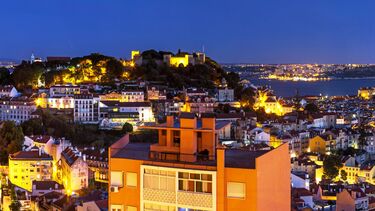Lisbon experienced a radical transformation of its real estate market in the aftermath of the global financial crisis, which today means the city has some of the highest housing costs in Europe.
Rafaella argue's that this transformation was not only a result of the ‘push factor’ of overaccumulated capital in core economies, or of the Portuguese state’s implementation of urban reforms, but that real estate industry actors also played a key role in re-framing Lisbon as a viable and even promising investment opportunity. This relied on certain key narratives, for example Portugal as a 'good student' of EU austerity directives which made it an ostensibly more 'stable' investment option.
Drawing on real estate industry reports and spaces, the paper brings together critical political economy literature and performativity approaches to examine how capital switching between core and (semi-)periphery is discursively mediated.
Re-framing a semi-periphery: The making of Lisbon as a global real estate market

